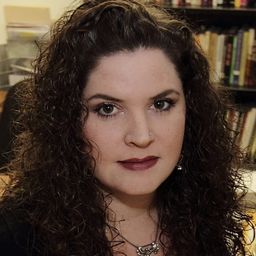
Dr. Monica Patterson
Her current book project examines the contested and conflicting constructions of childhood in late apartheid South Africa, from 1976 until the early 1990s when negotiations for the transition to democracy began.
Monica has conducted extensive fieldwork and archival research in South Africa and Zimbabwe, and has worked on a number of public history projects.
She holds a certificate in Museum Studies from the University of Michigan and has curated several exhibits based on her research.
Sessions in which Dr. Monica Patterson participates
martes 7 junio, 2016
The Canadian Museum for Human Rights opened to the public in September 2014. Yet this "first museum solely dedicated to the evolution, celebration and future of human rights," met serious criticism from a variety of stakeholders before it even opened its doors. These stakeholders included Indigenous and Ukrainian communities, anti-poverty activists, feminists, gay rights activists, and disability advocates who questioned some of the museum's key curatorial choices in framing issues of righ...
Sessions in which Dr. Monica Patterson attends
sábado 4 junio, 2016
Heritage practices often lead to social exclusion. As an "Authorized Heritage Discourse" (AHD) (Smith 2006) may define what is considered to be heritage, a certain set of social values can come to exclude other values. By formulating heritage policies which reproduce the existing AHD government may further such exclusion. Every now and then AHDs are challenged, leading to what political scientists like Ross (2007; 2009) call "cultural contestations" between groups. These are surrounded ...
This session explores artist-history exchanges in the context of heritage sites, venues and spaces, and considers recent curatorial and artistic interventions and performative strategies, such as decolonial methodologies. Drawing on disciplinary art history, this session approaches heritage sites as strategically re-deployed historic structures that function as representational signs – artifactual objects furnished with other objects that cumulatively and, by virtue of their provenance, pr...
This festive event will offer delegates a taste of one of the iconic dishes of Montreal, the smoked meat sandwich, imported by Jewish immigration from Eastern Europe in the early 20th century. In particular, the tasting will allow a discovery of the products of the renowned international institution Schwartz's, the Hebrew Delicatessen for which Montrealers and tourists alike are willing to wait in long line-ups. During the tasting, “Chez Schwartz,” a documentary produced by Garry B...
Most of what we experience as heritage emerges into conscious recognition through a complex mixture of political and ideological filters, including nationalism. In these processes, through a variety of devices (museums, scholarly research, consumer reproduction, etc.), dualistic classifications articulate a powerful hierarchy of value and significance. In particular, the tangible-intangible pair, given legitimacy by such international bodies as UNESCO, reproduces a selective ordering of cul...
domingo 5 junio, 2016
lunes 6 junio, 2016
Around the globe the planning of large-scale memorial-museum projects concerned with violent histories are frequently marred by conflict, omission, and competitions of victimhood. This problem also extends to scholarship on genocide and memory. “Moving memory” is a collaborative multi-sited research exhibition about the Armenian and Roma genocides that proposes creative solutions to these museological and scholarly conflicts around commemoration. Our multi-sited event includes two pr...
martes 7 junio, 2016
In November 2014, artists and thinkers including Jimmie Durham, Michael Taussig, Rebecca Belmore and Paul Chaat Smith convened in Calgary and Saskatoon for “Stronger than stone: (Re)Inventing the Indigenous Monument,” an international symposium which served to foreground the most critical issues facing Indigenous memory-making and cultural preservation today. Propositions for new types of monuments (or anti- monuments in many cases) were made that were specific to the Indigenous worldview and...
An experiment in moving memory, this live event bridges public and academic space to re-imagine knowledge exchange, creation and impact. Around the globe the planning of large-scale memorial-museum projects concerned with violent histories are frequently marred by conflict, omission, and competitions of victimhood. This problem also extends to scholarship on genocide and memory. “Moving Memory: difficult histories in dialogue” is a collaborative multi-sited research exhibiti...
To date, very little literature explicitly explores the relationships of museums and heritage to historical consciousness, despite the overlapping concerns shared by these respective fields. This roundtable addresses the subject of museums as sites of historical consciousness by reflecting on a recent book project. Museums as Sites of Historical Consciousness: Perspectives on Museum Theory and Practice in Canada (working title, UBC Press, 2016) examines (1) ways that museums create and sha...


